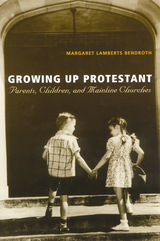Habitat For Humanity: Building Private Homes, Building Public Religion
Temple University Press, 2001
Paper: 978-1-56639-803-9 | Cloth: 978-1-56639-802-2
Library of Congress Classification BV4407.63.B34 2000
Dewey Decimal Classification 267.13
Paper: 978-1-56639-803-9 | Cloth: 978-1-56639-802-2
Library of Congress Classification BV4407.63.B34 2000
Dewey Decimal Classification 267.13
ABOUT THIS BOOK | AUTHOR BIOGRAPHY | REVIEWS | TOC
ABOUT THIS BOOK
Habitat for Humanity®, a grassroots house-building ministry founded in 1976 by evangelical Christians, is one of the best-known and most widely popular nonprofit organizations in operation today. With approximately 1500 local Habitat affiliates in the United States and more than 85,000 homes primarily by mobilizing concerned citizens, who include about 250,000 American volunteers each year.
The author tells the story of Habitat's development and the special fervor it evokes among volunteers and those for whom it builds houses. Through interviews with staff, he also provides a look into the organizational dynamics of Habitat, a non-profit whose religious mission for social change is inevitably affected by the instrumental, bottom-line orientation of the state and the market.
Baggett argues that Habitat is an examine of a particular social form of religion, the paradenominational organization, that is uniquely adapted to the climate of the modern world. It is one of the vital forms that voluntarism takes today.
The author tells the story of Habitat's development and the special fervor it evokes among volunteers and those for whom it builds houses. Through interviews with staff, he also provides a look into the organizational dynamics of Habitat, a non-profit whose religious mission for social change is inevitably affected by the instrumental, bottom-line orientation of the state and the market.
Baggett argues that Habitat is an examine of a particular social form of religion, the paradenominational organization, that is uniquely adapted to the climate of the modern world. It is one of the vital forms that voluntarism takes today.
See other books on: Christianity | Public Religion | Religious aspects | Sociology | Voluntarism
See other titles from Temple University Press





























